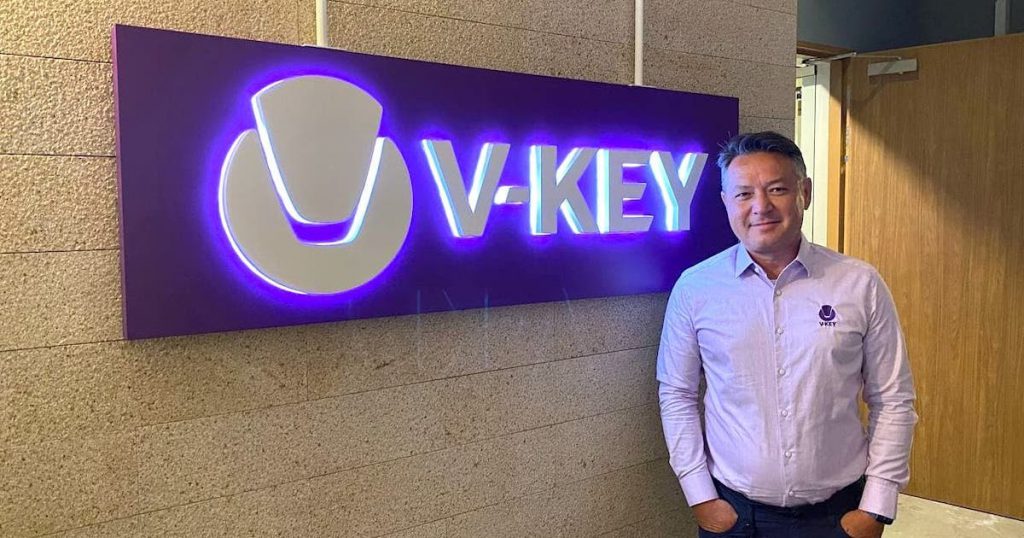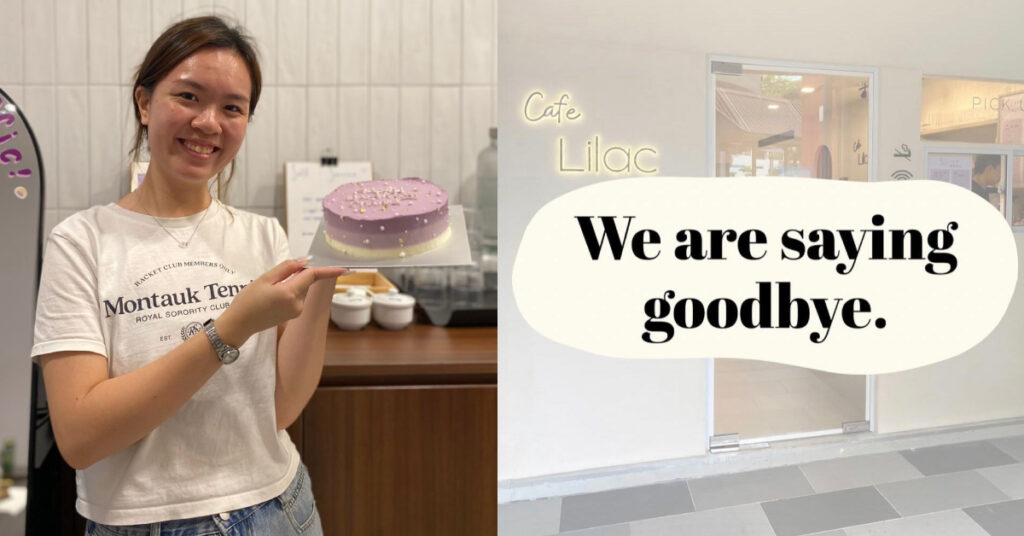Cyber security incidents are on the rise each year and Covid-19 has only exacerbated it.
In 2020, it is reported that the average cost of a cyber security attack for companies in Singapore cost S$1.7 million per breach, which highlights the increased need for companies — regardless of any size or industry — to beef up their cybersecurity efforts.
As cybersecurity becomes all the more important, one company working hard to meet the growing market needs is homegrown software-based digital security firm V-Key.
Founded in 2011, V-Key offers a range of groundbreaking products that enhance banking and government-grade security, while providing convenience and ease for all users with any level of familiarity with digital security systems.
Growing a cybersecurity startup in Singapore
V-Key had first started out by replacing hardware tokens in the banking world.
“Our major local banks were one of the first to digitalise their services 10 years ago with digital banking, but it wasn’t until much recently that banks did away with physical hardware tokens,” said Raymond Lee, Chief Operating Officer at V-Key.

These physical tokens were very much hindering what V-Key envisioned as a seamless user experience. People had to carry a token for each bank or account, and these tokens often got lost or ran out of battery.
To solve this pain point, V-Key went on to invent and patent technology to securely authenticate a user’s identity in the digital world, effectively replacing hardware with software.
“That was our ‘a-ha’ moment when the company was founded,” said Raymond proudly. Thanks to their technology, major banks across the region have started phasing out two-factor authentication (2FA) physical hardware tokens in place of software tokens.
Starting up with the support of the Singapore government
As V-Key celebrates its 10th anniversary this year, Raymond looks back on the company’s monumental growth thus far.

V-Key is the inventor of internationally-patented software V-OS. It is a novel Virtual Secure Element that offers advanced cryptographic and cybersecurity protections that was previously only attainable with expensive hardware solutions.
Essentially, V-OS is the reason why we can securely log into our digital banking apps using just our phones, without using separate hardware devices.
However, as a budding software company, one of its early challenges was ensuring their technology was secure, trusted, and certified globally.
“The very first thing that you need to do as a software company is to differentiate yourself (from others). How we differentiated ourselves was to make sure that the technology was certified globally, so a lot of investment went into that,” said Raymond.
Their efforts soon paid off, and V-Key finally had a robust solution that was recognised by industry regulators across the region, including the Monetary Authority of Singapore (MAS).
Raymond is grateful that organisations like Enterprise Singapore (ESG) and government entities were very supportive, which enabled them to be among the first to be accredited, giving them “a lot of stature in the industry.”
The stringent certification process helped them build trust and credibility among regulators and consumers, which made it easier for them to sell their cybersecurity products to enterprises, especially banks.
You can’t fly alone: how V-Key spreads its wings overseas
On their quest for recognition, V-Key sought support from the Singapore government in many facets, which helped to open doors for the company to participate in many enterprise pilots.
Thanks to the opportunity to connect with local businesses, V-Key experienced a “meteoric rise in the Singapore landscape.”

“We started doing a lot of work for the local banking sector and a few government ministries,” said Raymond.
“We were very successful in the local market, which was a wonderful thing, but the world is a lot bigger than Singapore. I fundamentally believe that every startup in Singapore has no choice but to expand,” said Raymond, as he shared what sparked their regional expansion journey.
As Singapore’s third fastest-growing company in 2019, V-Key has successfully expanded to 14 countries. While Southeast Asia remains their largest growth area, they also have customers in the Middle East, India, Japan, and Taiwan.
“When we take a Singapore brand out to Thailand, Indonesia, or Malaysia, and we tell businesses that our technology is supported by the MAS and used by the largest banks in Singapore. V-Key’s credibility was more easily validated,” said Raymond.
However, organic expansion has always been arduous. Some of the internal struggles that V-Key faced were in building the team and trying to evolve around the region.

“It’s always a challenge finding the right talent, both locally and overseas. We are very fortunate to have some very strong partners in ESG, which has helped and guided us in overseas ventures,” said Raymond.
Another obstacle V-Key faced was in broadening their products’ use cases, so it enlisted ESG’s help with product development for further expansion.
Their in-market officers provided them with a macro view on cybersecurity, growth industries like banking, finance, and insurance, as well as startup economies. These valuable inputs helped V-Key with decision-making around product development.
However, Raymond said that he finds that running a business and scaling new businesses overseas at the same time was an uphill battle.
“Like many Singapore-grown companies, our growth ambition drives our strategies to pivot the business and we always have to think of the best ways to grow, and grow fast.”
To ease their struggles, V-Key tapped ESG Overseas Centre’s vast network of global officers to help with their overseas expansion.
For instance, when V-Key expanded to the Middle East, ESG officers introduced them to partners across different countries.
“This opened our doors to various ecosystems, otherwise, we might have to start from scratch without their help.”
Scaling up for growth and innovation

Raymond stressed that it’s important to “check all the right boxes” in the first two to three years to make sure that the company is ready to go to market. This includes building a credible product, getting it locally accredited and globally certified, building a customer base, and building up a solid use case.
When it comes to expanding overseas, the company also needs to make sure that it can expand with the same use cases and value proposition.
For instance, a unique problem statement that V-Key helped to solve is the cardless ATM application that’s common in countries like Thailand and Vietnam. Essentially, their user authentication software allows people to withdraw money from ATMs using just their smartphones.
“You would think this should be prevalent in Singapore too because we are so digitally forward. But for every ATM in Singapore, if you don’t have your card, don’t even bother lining up (because) you can’t get money. When you’re overseas, however, you can.”
Coming up with new applications in different use cases is just one aspect of scaling the business. Diversifying their revenue, gaining more customers, and growing and learning as a company also play a part.
In fact, this startup is part of the third intake of Enterprise Singapore’s Scale-up SG programme.
This programme involves C-level management team participation with guidance from industry experts.
“We initiated a collaborative project in building a digital trust platform that sets out to form ecosystems of local partners looking to build trust around their digitalisation efforts. V-Key was part of the cohort (in the programme) where we found our first pioneer set of (business) partners,” said Raymond
“Our team has learned how to expand our growth strategy and position V-Key for a much broader market, branching out and expanding the company’s product portfolio.”
Raymond added that he expects to see tangible effects of the programme as he pushes the company further across the globe within the next year or so.
V-Key is also constantly looking for better, faster, and more efficient ways to problem solve.
“Innovation in the tech space is the lifeblood of any tech company; if you cannot innovate in the tech sector, you’re really not in tech,” stressed Raymond.
If you would like to find out how Enterprise Singapore can help support your business growth, visit www.enterprisesg.gov.sg/keepgrowing and make an appointment with a SME Centre Business Advisor.
This article was written in collaboration with Enterprise Singapore.
Featured Image Credit: Vulcan Post










